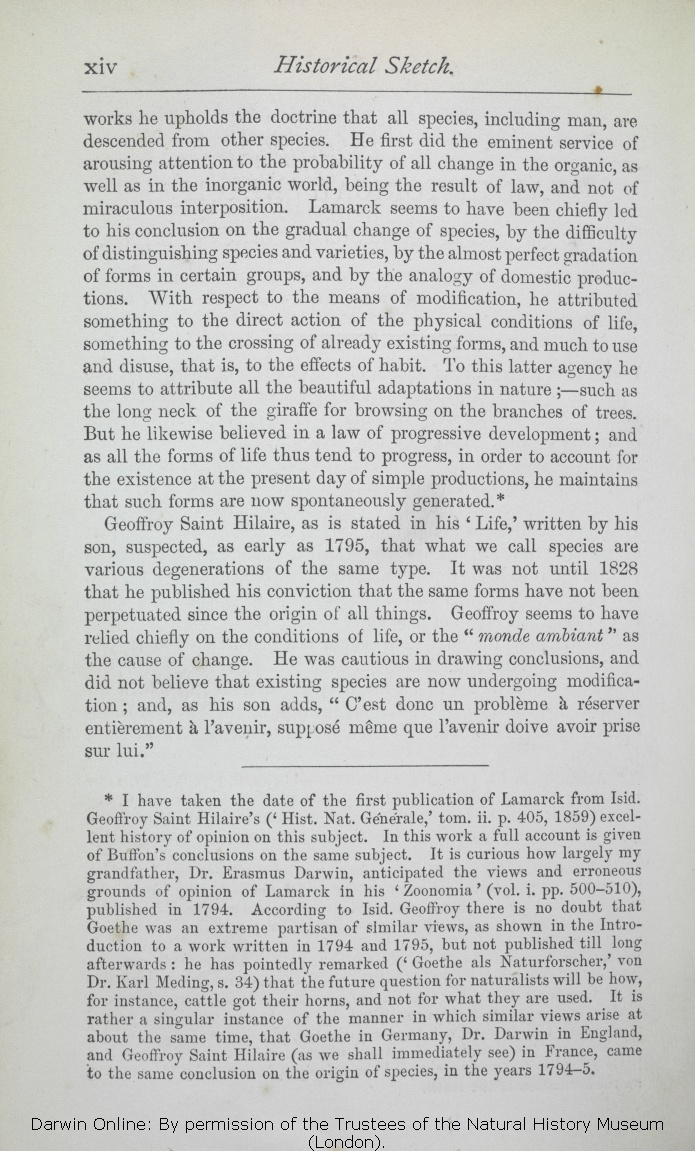He first did the eminent service of arousing attention to the probability of all change in the
organic, | organic, 1866 1869 1872 | | organic 1861 |
| world, 1866 1869 1872 | | world 1861 |
| gradation 1861 1866 1872 | | graduation 1869 |
| ..... 1866 1869 1872 | | organic 1861 |
| nature;— 1861 1872 | | nature;—such 1866 1869 |
| such 1861 1872 | such 1866 1869 |
| tend 1866 1869 1872 | | tended 1861 |
| ..... 1866 1869 1872 | | very 1861 |
| maintains 1866 1869 1872 | | maintained 1861 |
| are 1866 1869 1872 | | were 1861 |
|
|
Geoffroy
Saint-Hilaire, | Saint-Hilaire, 1872 |
| Saint Hilaire, as 1861 1866 1869 |
| as is 1872 | | is 1861 1866 1869 |
|
ambiant
"
1872 | |
ambiant
,"
1861 | |
ambiant,
"
1866 1869 |
| "C'est 1861 1866 1872 | | "C'ost 1869 |
| donc 1866 1872 | | done 1861 1869 |
| lui." — — — — — — — — — — — — — — — — 1872 |
| lui." 1861 1866 1869 |
|









